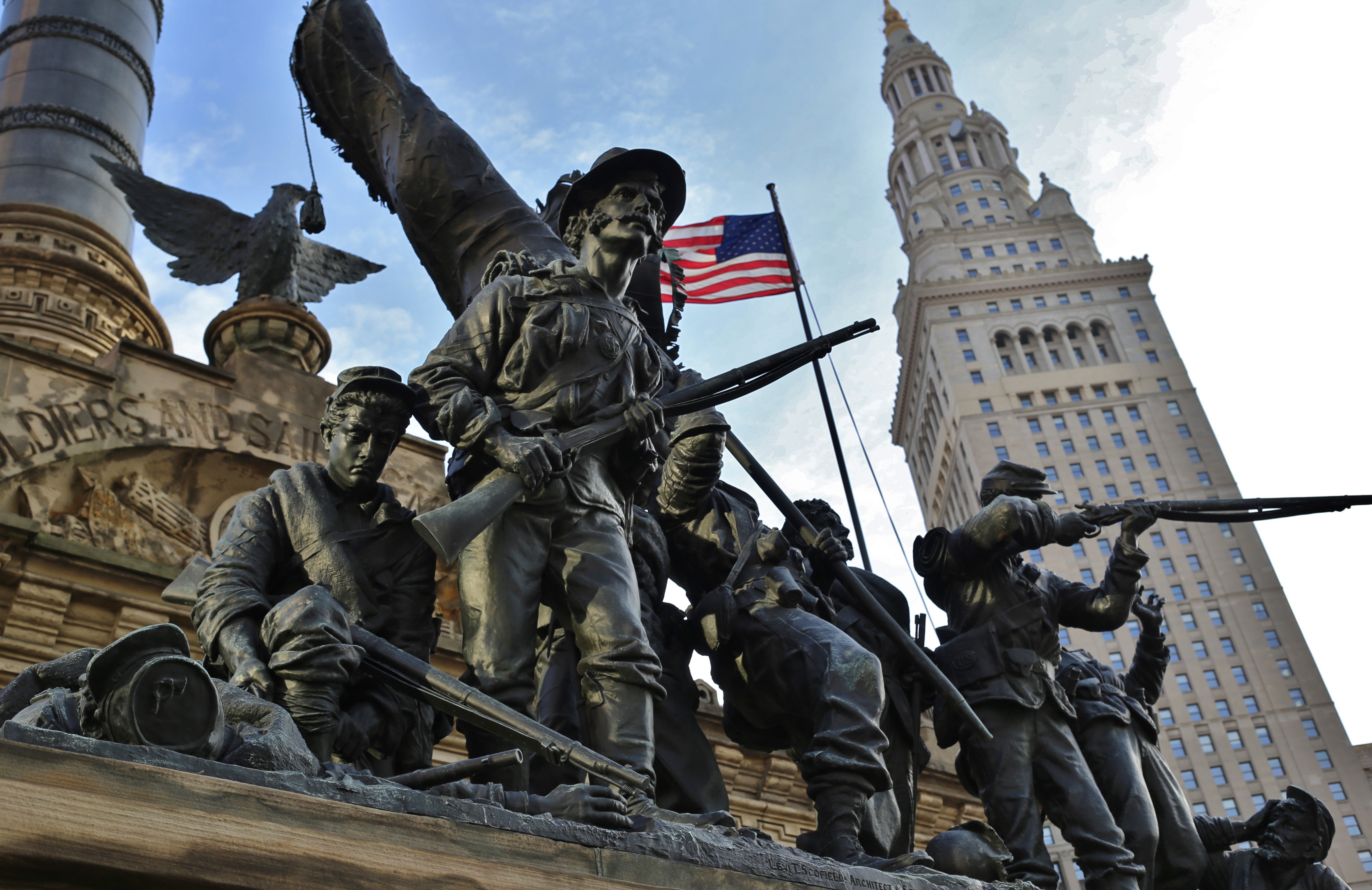The issues surrounding current and ongoing battles over historic monuments and their impact on historical memory will be the subject of a discussion among an interdisciplinary panel of UConn scholars on Thursday, Sept. 24 from noon to 1:30 p.m. via Zoom.
“Monuments to the Past, Structures of the Present” will be hosted by UConn’s American Studies Program, which brings together faculty and students from a wide variety of disciplines to promote an awareness of the complex cultural, political, and economic structures that have guided the history of the US and the Americas.
“American Studies is uniquely positioned to bring together this kind of interdisciplinary mix,” says Christopher Vials, professor of English and director of American Studies. “We are the site of a lot of work on cultural memory. When you’re talking about cultural memory, historical memory, it is a topic that’s very rich. There is no existing department that adequately captures and contains a conversation that can happen in in art, history, geography, philosophy, history, English, and political science.”
Vials says that by their nature, monuments “collapse the conceptual divide between past and present,” and that the field of American Studies has long focused on the politics of historical memory.
“Erecting a monument isn’t just a neutral statement about history,” he adds. “It’s about honoring particular and selective features from the past. Tearing down a monument is a political act, but putting up a monument is a political act as well. Monuments are visual artworks, often of distant vintage, that construct particular sites of memory. In so doing, the figures they marbleize manage to display how the social structures of earlier eras continue to permeate everyday life in the here and now.”
Vials says the American Studies program decided to host the event mostly with UConn scholars because there are so many who do excellent work on historical memory. The Sept. 25 panel will include:
Kelly Dennis, associate professor of art history and author of “Art/Porn: A History of Seeing and Touching.” She is currently working on a book about landscape photography and how it has shaped historical narratives of the Southwest.
Ken Foote, professor of geography, is past president of American Association of Geographers and has written widely on public memory and commemoration in the U.S. and Europe, including his award-winning “Shadowed Ground: America’s Landscapes of Violence and Tragedy.”
Lewis Gordon, professor and head of philosophy, focuses on politics, morality, race, and decolonial thought. He is the author of “What Fanon Said: A Philosophical Introduction to his Life and Thought,” and editor of the American Philosophical Association Blog series “Black Issues in Philosophy.”
Micki McElya, professor of history, studies nostalgia and historical narratives of race and nation. Her most recent book is “The Politics of Mourning: Death and Honor in Arlington National Cemetery,” nominated for the Pulitzer Prize.
Cathy Schlund-Vials, professor of English and Asian American Studies, has published extensively on memorialization, particularly as it pertains to U.S. militarism, refugee diaspora, and Asian/American racial formation. She is the incoming President of the American Studies Association.
To obtain the link for “Monuments to the Past, Structures of the Present,” contact Vials at christopher.vials@uconn.edu



